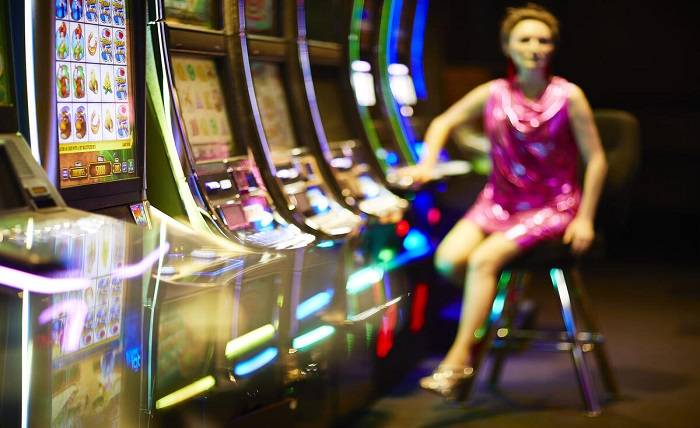Introduction
Slot gaming can be an exhilarating and enjoyable experience, but it also has the potential to evoke strong emotions, both positive and negative. The thrill of winning and the disappointment of losing can lead to intense feelings that may impact your gaming behavior. To make the most of your judi slot gaming experience and promote responsible play, it is essential to develop strategies for managing your emotions. In this article, we will explore the various emotions that can arise during slot gaming, the impact they can have on your decisions, and practical strategies for maintaining emotional balance and control while playing.
- The Emotional Rollercoaster of Slot Gaming
1.1 Excitement and Joy
Winning in slot gaming often triggers feelings of excitement and joy. The thrill of hitting a jackpot or getting a big win can create an adrenaline rush and a sense of euphoria.
1.2 Frustration and Disappointment
Conversely, losing streaks or experiencing near-misses can lead to frustration and disappointment. These emotions may tempt players to chase losses and continue playing beyond their intended limits.
1.3 Anxiety and Tension
The uncertainty of slot gaming outcomes can lead to feelings of anxiety and tension. Players may feel anxious about the possibility of losing money or missing out on potential wins.
1.4 Overconfidence
Experiencing a series of wins can lead to overconfidence, causing players to take greater risks and potentially lose more than they intended.
- The Impact of Emotions on Gaming Behavior
2.1 Impulsive Decision-Making
Emotions can influence decision-making during slot gaming. Strong emotions, such as excitement or frustration, may lead to impulsive bets without considering the potential consequences.
2.2 Chasing Losses
The disappointment of losing can drive players to chase losses by increasing their bets in an attempt to recoup their losses quickly.
2.3 Extended Playing Time
Positive emotions, such as excitement and joy, may lead players to extend their playing time beyond what they originally planned.
2.4 Ignoring Responsible Gambling Practices
Emotions can cloud judgment and cause players to disregard responsible gambling practices, such as setting limits on time and money spent on slot gaming.
- Strategies for Managing Emotions
3.1 Set Realistic Expectations
Before starting a slot gaming session, set realistic expectations. Understand that winning is not guaranteed, and losing is a possibility. Approach the game with the mindset that it is primarily for entertainment.
3.2 Set a Budget
Decide on a budget before playing and stick to it. Setting a financial limit will help prevent impulsive spending and reduce the risk of significant losses.
3.3 Take Breaks
When emotions are running high, taking breaks can be beneficial. Stepping away from the game allows time for emotions to settle and helps prevent impulsive decision-making.
3.4 Utilize Responsible Gambling Tools
Many online slot gaming platforms offer responsible gambling tools, such as deposit limits, session time limits, and reality checks. Utilize these tools to help manage your gaming behavior.
3.5 Focus on Entertainment
Remember that slot gaming is meant to be a form of entertainment. Enjoy the gaming experience without solely focusing on winning or losing.
3.6 Practice Mindfulness
Practicing mindfulness techniques can help you stay in the present moment and be aware of your emotions. Mindfulness can help you make more rational decisions during slot gaming.
3.7 Avoid Alcohol and Substance Use
Avoid playing slot games under the influence of alcohol or other substances, as this can impair judgment and lead to reckless gambling behavior.
3.8 Seek Support
If you find it challenging to manage your emotions during slot gaming, consider seeking support from friends, family, or a gambling support helpline.
- Recognizing Signs of Problem Gambling
4.1 Chasing Losses
Continuously increasing bets in an attempt to recoup losses is a red flag for problem gambling.
4.2 Neglecting Responsibilities
If slot gaming begins to interfere with your daily responsibilities and obligations, it may be a sign of problematic behavior.
4.3 Preoccupation with Gambling
Constantly thinking about slot gaming and planning the next session can indicate an unhealthy relationship with gambling.
4.4 Gambling to Escape
Using slot gaming as a way to escape from stress or negative emotions may indicate a potential issue with gambling.
- Responsible Gambling Resources
5.1 Gambling Support Helplines
Many countries have gambling support helplines that offer confidential support and resources for individuals struggling with gambling-related issues.
5.2 Self-Assessment Tools
Online self-assessment tools can help you gauge the level of your gambling behavior and determine if you may benefit from seeking support.
5.3 Gambling Support Groups
Joining a gambling support group can provide a supportive community of individuals facing similar challenges.
- Conclusion
Managing emotions during slot gaming is essential for maintaining a positive and responsible gaming experience. The rollercoaster of emotions that can arise during slot gaming, from excitement to disappointment, can impact decision-making and behavior. By setting realistic expectations, practicing responsible gambling, and utilizing strategies for emotional control, players can enjoy slot gaming as a form of entertainment while minimizing potential risks. Recognizing signs of problematic gambling and seeking support when needed is crucial for promoting responsible play and maintaining a healthy relationship with slot gaming. Remember, slot gaming is meant to be enjoyable, and responsible gambling practices can help ensure that it remains a fun and safe activity for all players.

